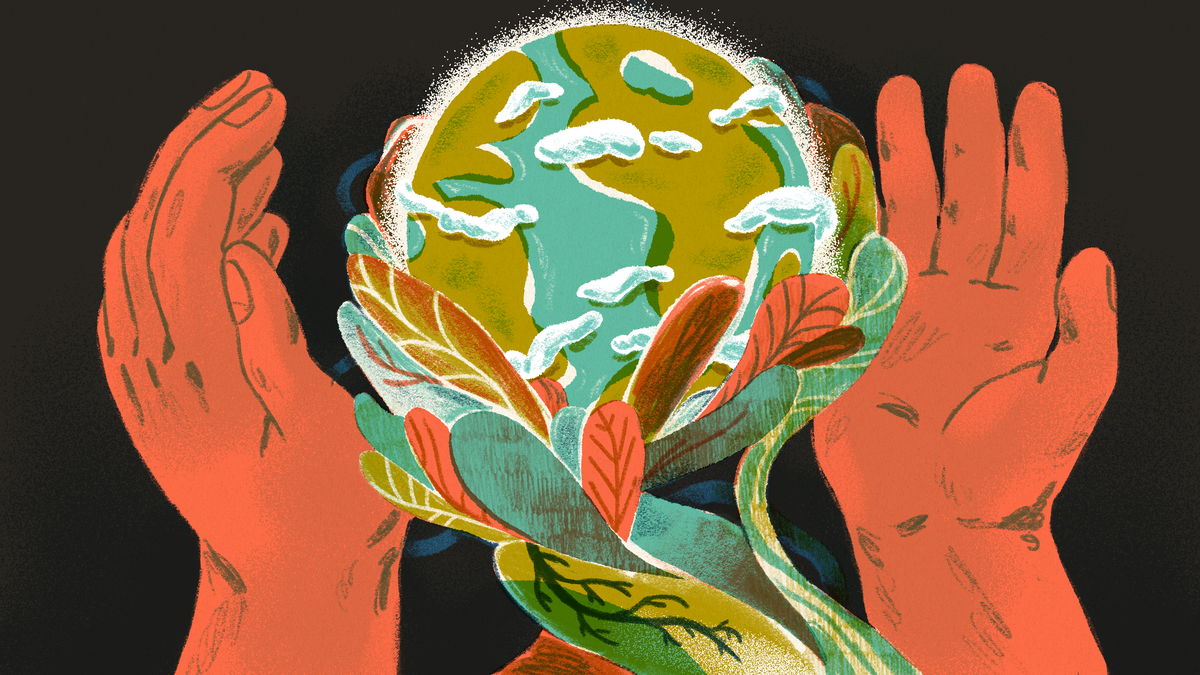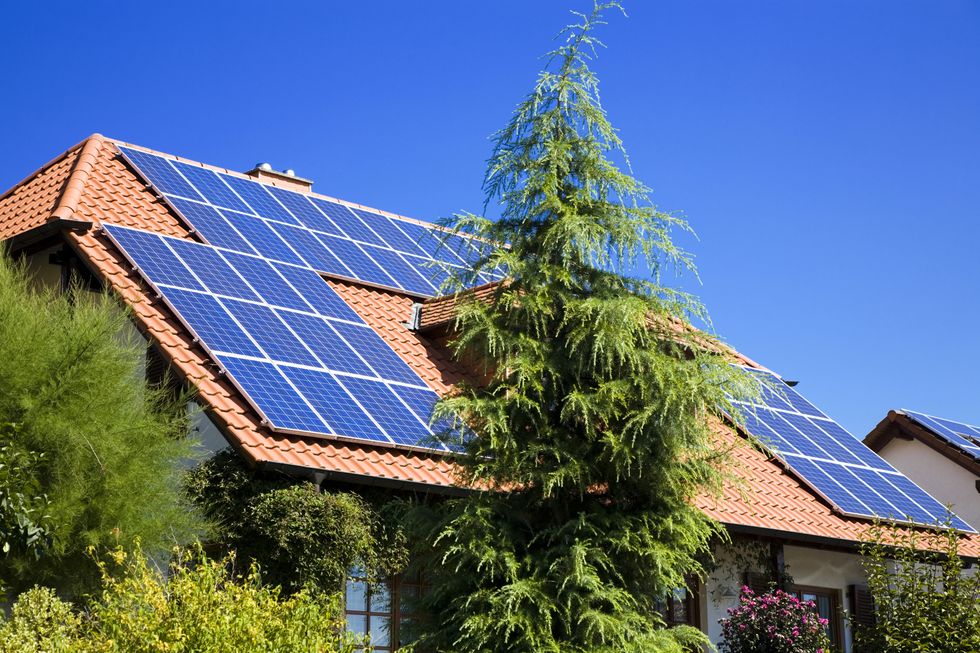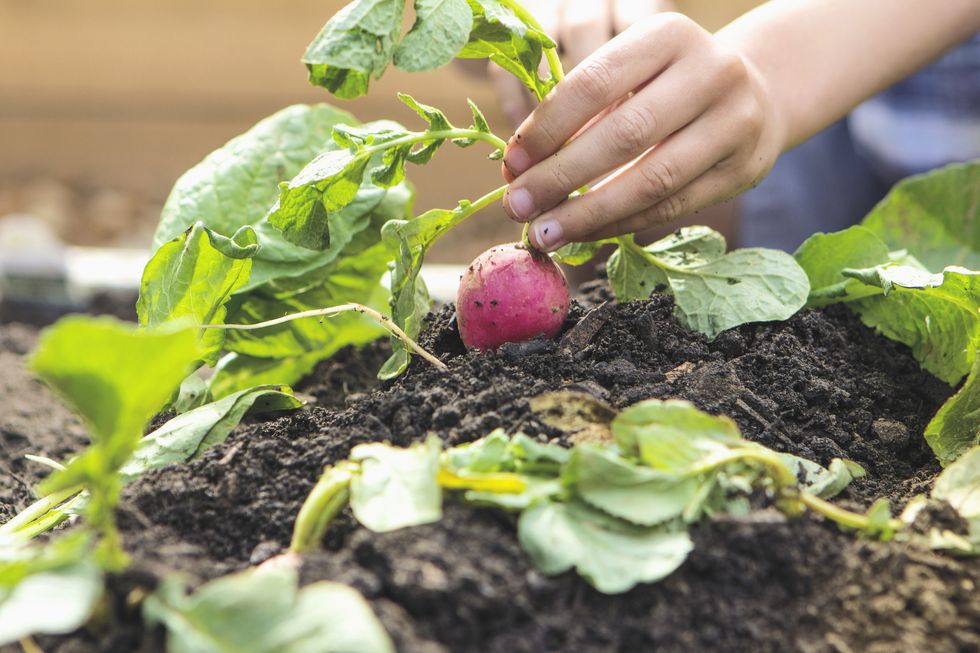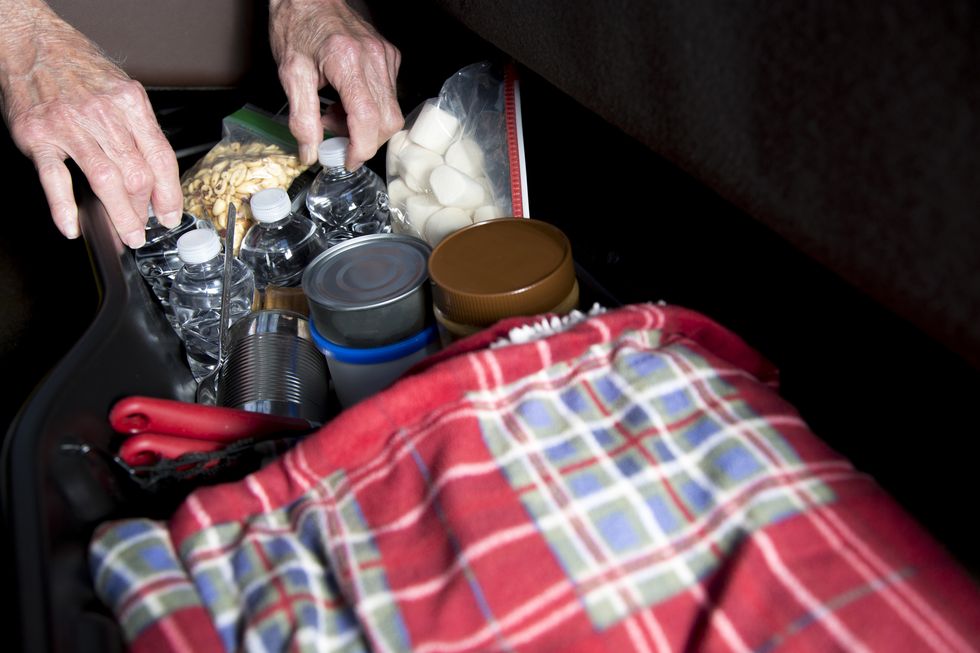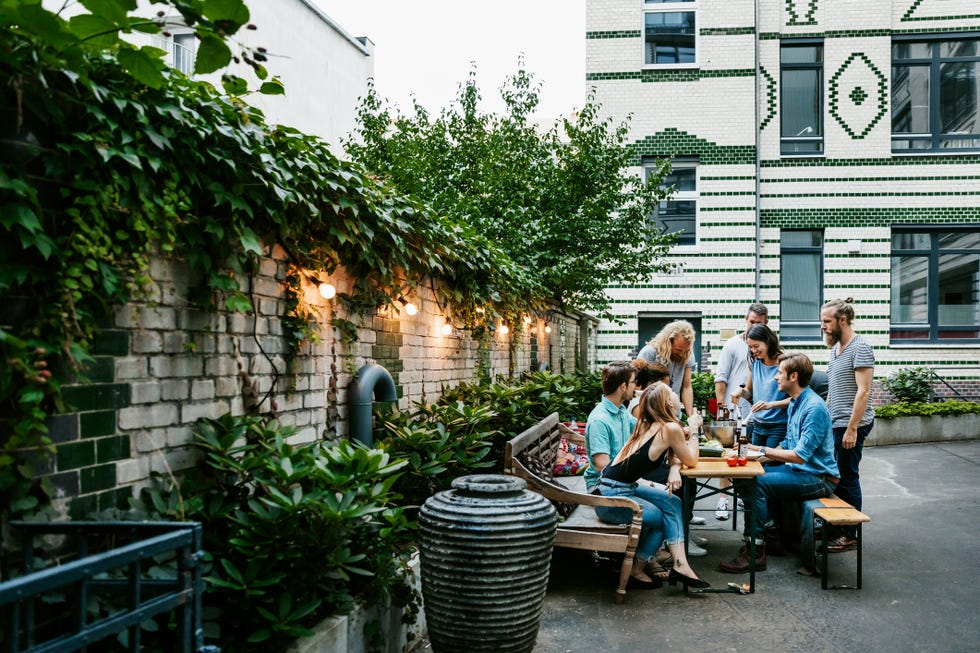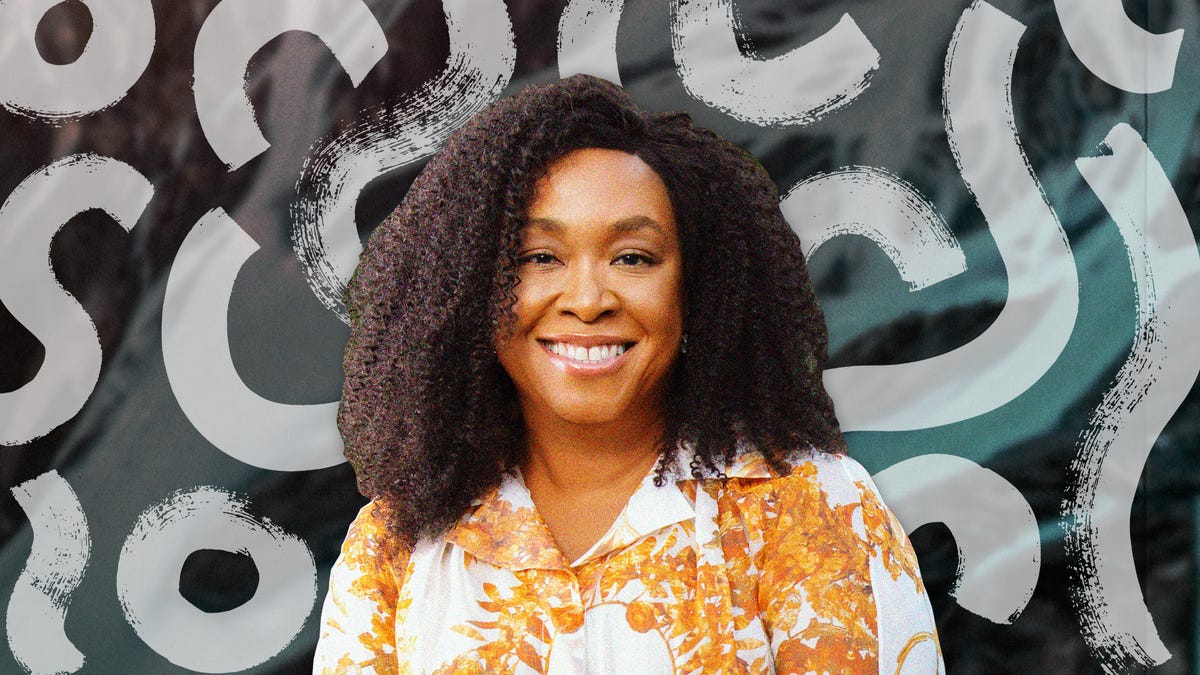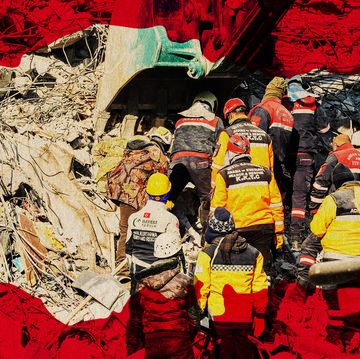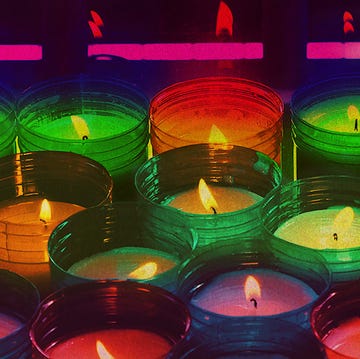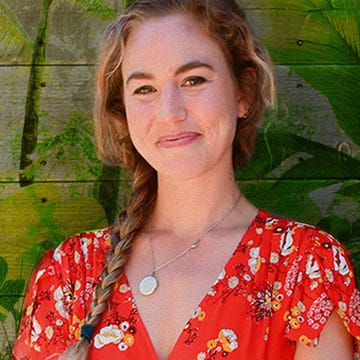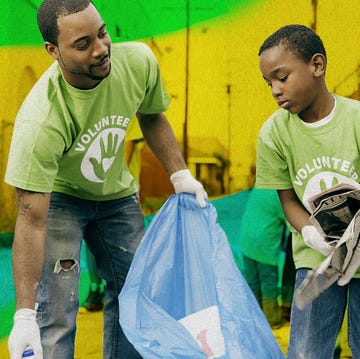A cleaner, greener Earth starts with us. In celebration of Earth Day, Shondaland is looking across the spectrum of our existence to see how updating the everyday – our diets, beauty regimes, cars, wardrobes, and more – can help care for the planet with thoughtfulness and grace.
For a brief time back in 2020, when we were all stuck inside not commuting and not dripping pollutants everywhere we weren’t going, there was a moment when it seemed like Earth was breathing a sigh of relief. Remember? The canals of Venice were somehow cleaner and clearer, goats roamed the streets of Wales undisturbed, and NASA noted drops in nitrogen dioxide pollution during lockdowns. There was, it seemed, hope for our planet — but it was short-lived: Not only did our “return to normal” bring us right back to where we were, it turns out that the “Nature is healing!” excitement we all felt was a bit of a false positive.
Nature, in fact, is not doing so great; scientists are warning it’s “now or never” to prevent catastrophic change to our climate and planet, with the recommendation that we cease use of fossil fuels immediately. While we can hope leaders in government and business make some substantial changes fast, the much more likely scenario is that we’re going to have to figure out how to navigate a rapidly changing, rapidly warming world. If that seems daunting, that’s a totally normal response, yet one disaster preparedness experts urge us to overcome.
“Things can seem so overwhelming,” says Jeffrey Schlegelmilch, the director for the National Center for Disaster Preparedness at Columbia University and the author of Rethinking Readiness: A Brief Guide to Twenty-First Century Megadisasters, “you can tuck [these big issues] away in your mind, or move on to immediate things.”
There’s no road map for facing an uncertain, unpredictable future, but one thing’s for sure: Sticking your head in the sand won’t help. Rather than pretend you’ll never be affected, taking control of the situation might offer some sense of comfort; as Mom always said, better safe than sorry. Here are some ways you can prepare for what might be ahead, and coming sooner than you think.
Get your living space in order
Homeowners have the advantage in climate-proofing their homes. Solar panels, proper insulation, solutions for excess water, and low-energy cooling and heating systems are all building blocks of the climate-proof home. Some homeowners in areas prone to wildfires like California are even fireproofing their dwellings, a labor-intensive effort that impedes most from doing so during construction, but you can minimize fire risk by doing things like keeping surrounding areas clear of kindling and trimming trees.
Apartment dwellers can likewise take steps to mitigate the effects of rising temperatures and poor air quality. Heavy-duty blinds and curtains that block out light are a simple, easy, and affordable way to keep the inside of your space from feeling like an oven. And air purifiers can greatly enhance indoor air quality increasingly compromised by warmer temperatures, emissions, and fires. See more innovative and creative ways designers are climate-proofing living spaces here and here.
Think about what you’ll eat
Scientists have warned that climate change will cause food shortages, and while there’s not a lot you can do about what’ll be stocked in grocery stores, you can find ways to mitigate disruptions. You likely already know that cutting out, or even cutting back on, meat will help reduce greenhouse emissions, but in terms of what you actually chew and digest, you can mitigate some potential food insecurity simply by growing your own food. Vegetable gardens aren’t that difficult to grow at home, and there’s no better way to ensure you’ll have food if all you have to do is pluck it from a vine or reach in the freezer for the fruits of your own harvest.
Prepare for natural disasters
The Earth is getting hotter. As a consequence, fires, floods, and other calamities will unfortunately be a new normal, in turn all but guaranteeing there will come a time when we experience power outages and a loss of other utilities. We almost might find responses from emergency services delayed, since personnel have limited resources and can’t be everywhere at once. Schlegelmilch says we can prepare for these scenarios in a few ways. “In most disasters, you’re either going to have to leave right away or stay in place for a long time without the comforts of electricity or water.” A disaster kit with essentials to last a few days is a good idea — as is a kit you could grab if you need to evacuate fast. You’ll want water (one gallon per person for three days is recommended), blankets, nonperishable food, flashlights, chargers for your devices, cash, candles, and of course, documents and medications you might need. You can build this over time or buy ready-made kits from a number of vendors online.
Build a network in your community
Schlegelmilch points out that creating disaster kits with food, water, and other essentials could be tough for families already struggling to deal with day-to-day needs. “We need to look very seriously as a society at the fact that preparedness, as is often defined, isn’t always an option for people,” he says. While he believes there’s a role that nonprofits should play in helping everyone be prepared, he notes that there are tremendous benefits in developing stronger bonds in our neighborhoods. Literally making friends with your neighbors so you all can look after one another is a more powerful preparedness tool than we might think, especially in the event that something catastrophic goes down. The old adage rings true: strength in numbers. And in the event you need to pool resources to help everyone, from the old to the young, get through a troublesome scenario, you want to be prepared. “Some of the best investments you can make are getting to know your neighbors,” he says. “Have a block party. Check in on each other. It doesn’t just sound right — data shows this is unequivocally a good investment.”
Malcolm Venable is a Senior Staff Writer at Shondaland. Follow him on Twitter @malcolmvenable.
Get Shondaland directly in your inbox: SUBSCRIBE TODAY
